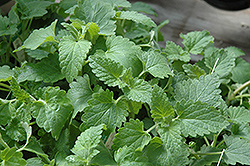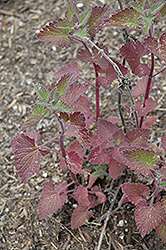>> Home
Plant Height: 3 feet
Flower Height: 4 feet
Spread: 3 feet
Sunlight:
![]()
![]()
Hardiness Zone: (annual)
Other Names: Catmint, True Catnip
Description:
Drive your cats wild by planting this perennial; it is covered with pale-pink flowers from early to late summer; catches the eye when massed; it will bloom in waves all summer; a fast-growing groundcover
Ornamental Features
Catnip has masses of beautiful spikes of lightly-scented shell pink flowers rising above the foliage from early to late summer, which are most effective when planted in groupings. Its attractive small fragrant pointy leaves remain grayish green in colour throughout the season.
Landscape Attributes
Catnip is a dense herbaceous annual with a mounded form. Its relatively fine texture sets it apart from other garden plants with less refined foliage.
This plant will require occasional maintenance and upkeep, and is best cleaned up in early spring before it resumes active growth for the season. It is a good choice for attracting bees and butterflies to your yard, but is not particularly attractive to deer who tend to leave it alone in favor of tastier treats. Gardeners should be aware of the following characteristic(s) that may warrant special consideration;
- Self-Seeding
Catnip is recommended for the following landscape applications;
- Mass Planting
- Border Edging
- General Garden Use
- Groundcover
- Herb Gardens
Planting & Growing
Catnip will grow to be about 3 feet tall at maturity extending to 4 feet tall with the flowers, with a spread of 3 feet. Its foliage tends to remain dense right to the ground, not requiring facer plants in front. Although it's not a true annual, this fast-growing plant can be expected to behave as an annual in our climate if left outdoors over the winter, usually needing replacement the following year. As such, gardeners should take into consideration that it will perform differently than it would in its native habitat.
This plant does best in full sun to partial shade. It is very adaptable to both dry and moist growing conditions, but will not tolerate any standing water. It is not particular as to soil type or pH. It is highly tolerant of urban pollution and will even thrive in inner city environments. This species is not originally from North America. It can be propagated by division.

